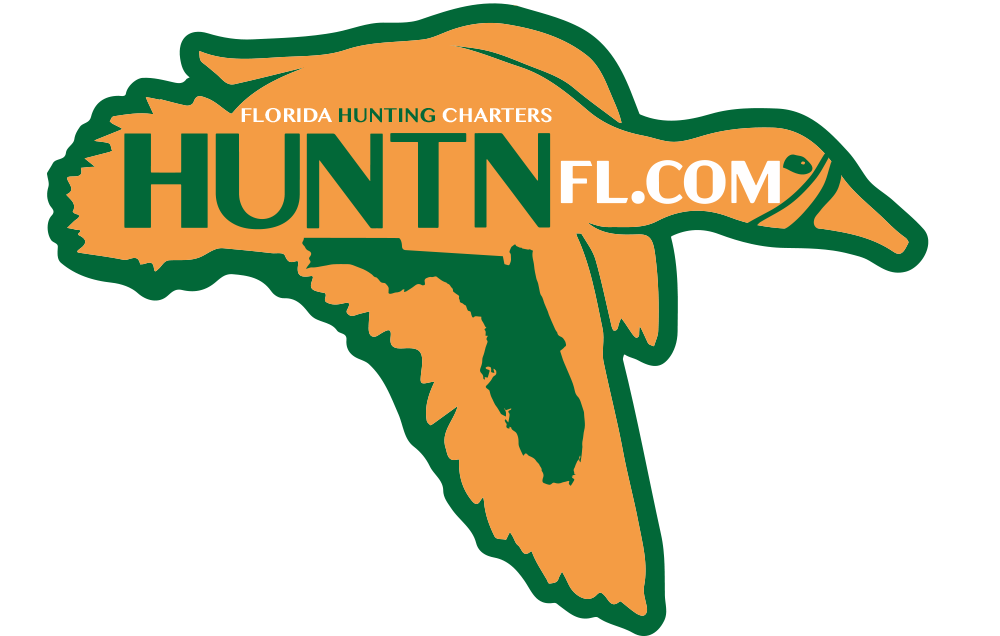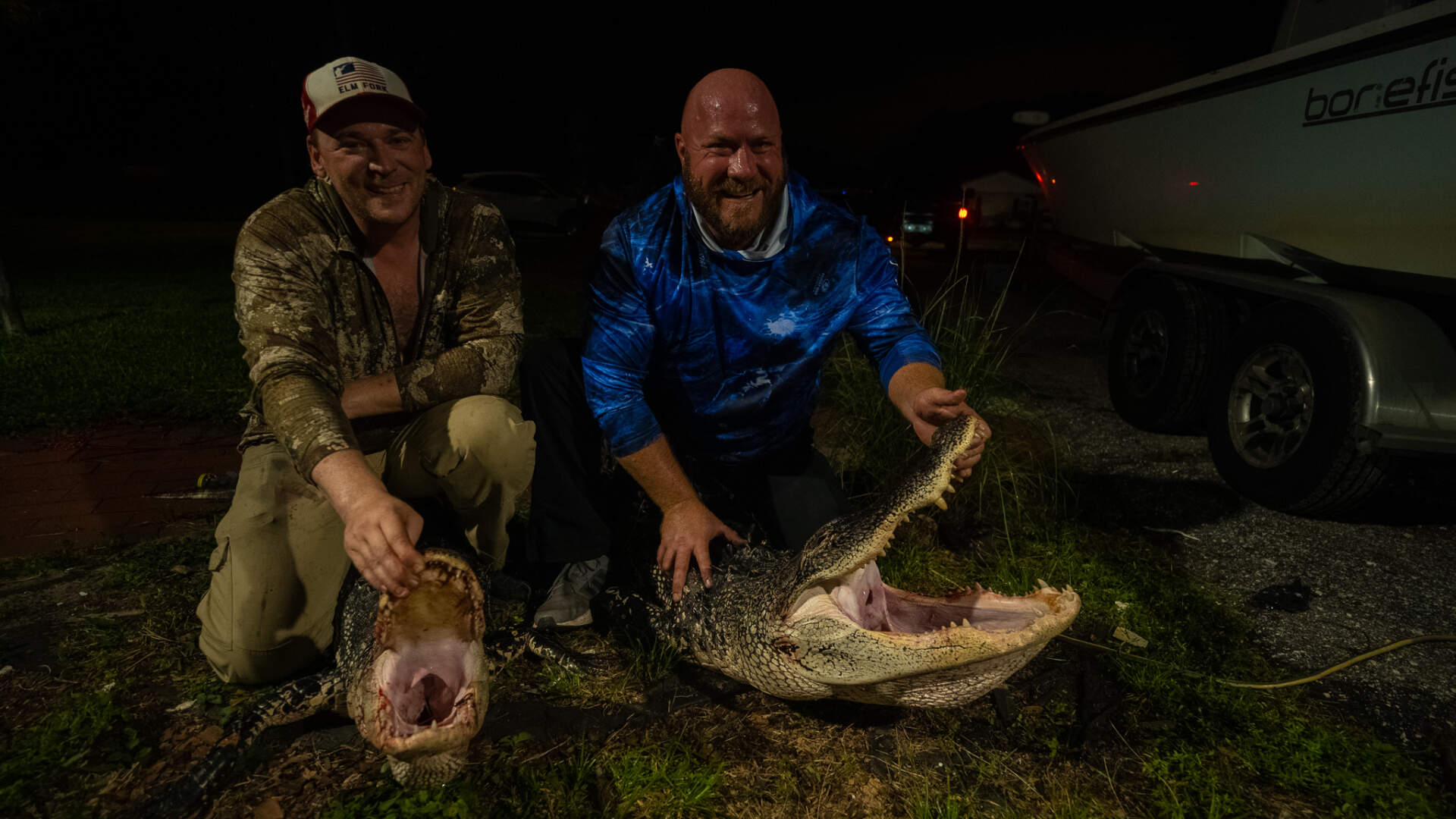Alligator hunting in Florida is an exciting and highly regulated activity that requires careful planning, proper permits, and an understanding of the legal process. Due to the logistical complexity of obtaining tags and following Florida’s hunting regulations, most hunters choose to book a guided hunt with a licensed service. Guides not only simplify the process but also provide essential equipment, expertise, and access to prime hunting locations.
Understanding Florida’s Alligator Hunting Regulations
The Florida Fish and Wildlife Conservation Commission (FWC) manages alligator hunting through a strict permit system designed to maintain healthy populations and ensure sustainable hunting practices. It is illegal to hunt alligators in Florida without the proper permits, and failure to follow regulations can result in significant penalties.
There are two main ways to legally hunt alligators in Florida:
- Public Water Hunt – The state conducts an annual lottery where applicants can apply for limited-entry permits that allow them to harvest a specific number of alligators in designated public areas.
- Private Land Hunt – Landowners or individuals with permission to hunt on private property can apply for a Private Lands Alligator Management Program permit, allowing them to hunt alligators on privately owned water bodies.
Due to the limited number of permits and the knowledge required to navigate Florida’s system, many hunters opt for a guided hunt where the outfitter handles the permitting and logistics.
Booking a Guided Alligator Hunt
For those unfamiliar with the process, booking a guided alligator hunt is the most efficient and legal way to experience alligator hunting in Florida. Guides are experienced professionals who already possess the necessary permits and understand the best hunting locations, techniques, and safety measures.
When selecting a guide service, consider the following:
- Licensing and Reputation – Ensure the outfitter is licensed through the FWC and has positive customer reviews.
- Hunting Methods – Some outfitters specialize in night hunts using spotlights, while others may offer daytime hunts with harpoons, crossbows, or bang sticks (a common tool for dispatching alligators at close range).
- Provided Gear – Most guides supply necessary equipment, including boats, harpoons, lines, and tags.
- Harvesting and Processing Options – Some guides assist with meat processing and trophy preparation, while others may direct hunters to third-party processors.
Guided hunts remove much of the complexity of obtaining permits, locating alligators, and handling required equipment, making them a preferred choice for both first-time and experienced hunters.
Required Licenses and Permits
For those pursuing alligator hunting independently, several licenses and permits are required:
- Statewide Alligator Harvest Permit – Required for participation in the public water hunt.
- Alligator Trapping License – Needed to legally harvest alligators.
- Hunting License (if applicable) – While a traditional hunting license is not always required for alligator hunting, additional licenses may be needed for certain hunting areas or non-residents.
- CITES Tag – All legally harvested alligators must be tagged with a Convention on International Trade in Endangered Species (CITES) tag, provided by the FWC.
These permits must be acquired in advance, and application deadlines and quotas vary each year. Missing the application window means waiting for the next season or finding a private land opportunity.
Hunting Methods and Techniques
Alligator hunting methods vary based on preference, location, and regulations. Some of the most commonly used techniques include:
- Spotlighting – A method where hunters scan water surfaces at night with high-powered lights to locate the reflective eyes of alligators before attempting to approach and secure them.
- Harpoon and Hand Line – A traditional and widely used method in which hunters harpoon an alligator, then use a strong hand line to pull it close before dispatching it.
- Crossbows and Archery Equipment – Some hunters use specialized broadhead arrows or crossbow bolts attached to lines, allowing them to secure and retrieve the animal.
- Bang Stick – A close-range firearm device designed to dispatch an alligator humanely once it has been secured.
Each method has its own skill requirements, and regulations dictate which tools can be used in different hunting zones.
Safety Considerations
Alligator hunting is not without risk, and safety must be a priority. Alligators are powerful, unpredictable animals that require careful handling. Important safety measures include:
- Always hunting with a partner or licensed guide.
- Wearing appropriate protective gear, including gloves and waterproof clothing.
- Following all firearm and equipment handling safety procedures.
- Staying aware of surroundings, particularly in areas where other wildlife or environmental hazards may pose risks.
Following these precautions helps ensure a safe and successful hunting experience.
Processing and Utilizing the Harvest
After a successful hunt, alligators must be properly processed. Options for handling the harvested alligator include:
- Meat Processing – Alligator meat is highly sought after and can be prepared in various ways. Many professional processors offer butchering services.
- Trophy Preparation – Hunters who wish to preserve their alligator as a trophy can work with a taxidermist for mounting options, including skull cleaning, full-body mounts, or leather tanning.
- Legal Compliance – Every harvested alligator must be properly tagged and reported in accordance with state regulations.
Hunters should plan their processing options ahead of time, especially if they intend to keep meat or trophies.
Preparing for a Successful Alligator Hunt
Alligator hunting in Florida requires more than just a permit and a plan—it takes preparation, knowledge, and an understanding of the unique challenges that come with hunting a powerful, unpredictable animal. Proper preparation is key to a successful and legal hunt, regardless of experience level. Hunters should plan ahead by scouting locations, learning effective hunting techniques, and ensuring they have the right equipment for the conditions. Working with a guide can simplify this process by providing the necessary permits, equipment, and access to prime hunting areas. Independent hunters must invest time in research, understand Florida’s hunting laws, and develop the skills needed to track and safely handle alligators. Understanding the behavior of alligators, choosing the right hunting method, and having the right tools all play a role in ensuring a smooth experience. Alligator hunting can be an unforgettable experience, but only if done responsibly. Taking the time to prepare, refine hunting skills, and secure the right resources ensures a smoother and more successful hunt. With the right approach, you can enjoy a legal, ethical, and successful alligator hunting adventure in Florida.

